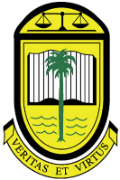Activities
Following the meltdown of Enron at the end of 2001, ICAC came under increasing pressure to improve oversight of the accounting industry. [2] In July 2003 ICAC was planning to introduce a regional practice-monitoring system to enhance the regulatory capacity of the profession. [3] After several corporate failures during the Great Recession, ICAC announced a scheme in November 2008 under which all members of the accounting Institutes in Barbados, Guyana and Trinidad and Tobago who performed audits would receive at least one monitoring visit during the six-year period starting in 2009. [4] As of 2009, all Caribbean islands that are part of ICAC had to undergo peer review except Jamaica, which was regulated by a public accountant oversight board. [5] ICACs emphasis on self-regulation and peer review has been criticized, since it is difficult to guarantee independence with the small numbers of professional accountants in each member state. [6]
In 2006, ICAC was helping its member institutes to prepare for the Caribbean Single Market (CSM). [7] The ICAC 2011 annual meeting, held in the Jamaica Pegasus Hotel in Kingston on 23–25 June 2011, attracted about 1,000 accountants from across the region. [8]
This page is based on this
Wikipedia article Text is available under the
CC BY-SA 4.0 license; additional terms may apply.
Images, videos and audio are available under their respective licenses.
